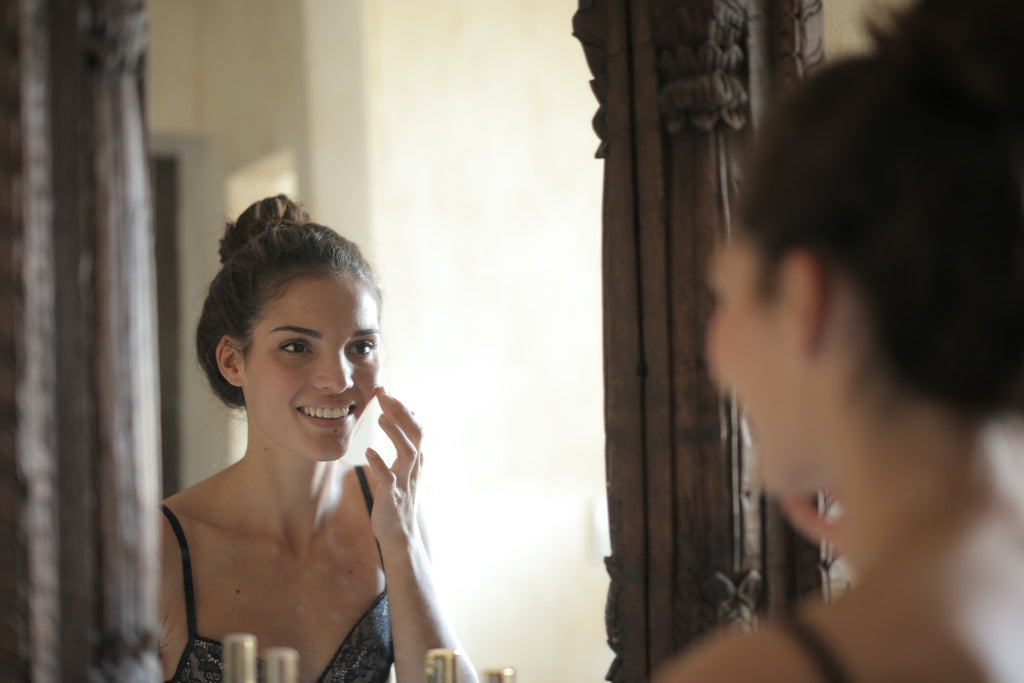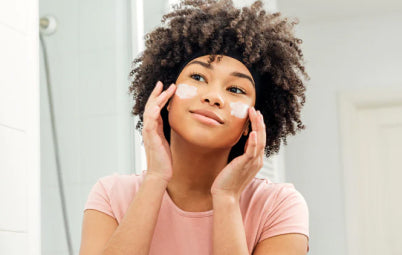The world of skincare can be a confusing place with so many ingredients, brands and products to choose from. But, once you know more about what certain ingredients can do—and which ones are best for you—it can be the secret to unlocking clear, healthy and glowing skin. Just take BHAs for example. They can help with everything from acne to ageing, hyperpigmentation to oiliness. But how do you know if they’re for you?
That’s where we can help. Here at Face Dr, our team of experts have decades of experience working in the skincare industry. We’ve helped hundreds of clients find the right ingredients for them and the best products that contain them. Here, we’ll cover everything there is to know about BHAs and how to start using them.
Want to save time and get an expert opinion on whether you should be using BHAs? We offer free online skincare consultations to do just that. You can speak with one of our skin experts who can analyse your skin, ask about your concerns then give you tailored recommendations for the ingredients—and exact products—that can help.
Ready to upgrade your skincare knowledge about BHAs? Here’s what we’ll cover:
- What are BHAs?
- What do BHAs do for the skin?
- How do you use BHAs?
- Are BHAs right for me?
- What are the side effects of BHAs?
- Which ingredients can you use with BHAs?
- Products to try with BHAs
Want to take a deep dive into other skincare ingredients? Here’s Matrixyl 3000, lactic acid and glycolic acid to get you started.
What are BHAs?

BHA stands for beta hydroxy acid. Unlike AHAs—which include glycolic acid and lactic acid—BHAs are oil-soluble, which means they can be absorbed deep into the skin through the skin’s oils. Once absorbed, they can help to clear out the pores, exfoliate the skin and remove dead skin cells, dirt and oil build-up.
There are a few types of BHAs but by far the most common one is salicylic acid.
BHAs include:
- Salicylic acid
- Trethocanic acid
- Beta-hydroxybutanoic acid
- Tropic acid
What do BHAs do for the skin?
BHAs have plenty of benefits for the skin. Here are just a few things BHAs can do:
- Clear acne and breakouts
- Reduce oiliness and shiny patches
- Smooth skin texture and reduce small bumps
- Reduce the look of visible pores
- Smooth fine lines and wrinkles
- Brighten hyperpigmentation
How do BHAs work?
Just like AHAs, BHAs exfoliate the skin. But instead of working only on the top layer of skin, BHAs are absorbed deep within the pores to exfoliate there. They break down and remove oil, dirt, and anything else clogging up our pores. They also help to loosen the bonds between dead skin cells so these can be more easily removed, too.
With this gone, acne and breakouts can clear up—and stay clear—and excess oiliness and shininess is reduced. Hyperpigmentation is lightened as the discoloured skin cells are lifted away and BHAs antibacterial properties work hard at keeping acne and redness under control.
Beyond exfoliation, BHAs can also help to reduce the amount of oil your skin produces. So if you’re suffering with a shiny complexion, BHAs can help to tackle the problem at the source and leave skin looking more matte over time.

How do you use BHAs?
BHAs are now a common skincare ingredient and you’ll find them in everything from cleansers to moisturisers, toners to serums and masks. How you use the ingredient will change depending on which product type you choose.
BHAs come in different percentage strengths, too, so some products are safe for everyday use—like cleansers—while other products should only be used once a week—like masks, for example. Always follow the instructions on the product you’re using and reach out to an expert if you want to learn how often you should be using BHAs in your routine.
Face Dr top tip: Look out for “BHA” but also “salicylic acid” on ingredient lists as many products simply list salicylic acid. Other types of BHAs—like trethocanic acid, beta-hydroxybutanoic acid and tropic acid—may also be listed, but these are not as common.
Are BHAs right for me?
BHAs are generally better suited for those with a combination to oily skin because they tackle oil build up so well. BHAs also tackle skincare concerns that these skin types usually suffer from—like acne, breakouts and shiny patches. But that doesn’t mean those with dry skin can’t use them!
In fact, BHAs are safe for all skin types, even sensitive skin and those with rosacea. Many people find that BHAs are actually far less irritating than AHAs.
What are the side effects of BHAs?
BHAs can cause redness, irritation and dryness in some people. These side effects are rarely serious and usually go away on their own. If you notice any side effects, stop using the product. You can also reduce the amount you use the product—for example, going from everyday to every other day—to see if that helps.
Face Dr top tip: Always do a patch test before using a new product, even if you’ve used BHAs before. Simply swipe a small amount of the product on your wrist or inside your elbow and then check for redness or signs of irritation 24 hours last. If everything is clear, you should be fine to go ahead and use the product on your face without side effects.

Which ingredients can you use with BHAs?
BHAs are a pretty gentle ingredient. This means you can use it with most other ingredients in your routine.
You can mix AHAs and BHAs and you can even find products that use both in the same formula. Both exfoliate the skin, just in different ways. Some people’s skin, however, might become sensitive to this much exfoliation, so alternating AHAs and BHAs may be better for you than using both at the same time. For example, you can use one on one night of your routine, then another on the next night.
Alternatively, the safest way to mix AHAs and BHAs is to simply choose a product that contains both ingredients. This way, you know the percentages have been formulated properly.
Face Dr top pick: ZO Oil Control Pads — these pads contain salicylic acid (a BHA) and glycolic acid (an AHA) to exfoliate the skin and leave it clean, clear and glowing.
However, if you’re using a retinol product, you shouldn’t mix this with a BHA product, unless you’re following professional advice, as the combination can be too harsh and irritating. Instead, make sure you use them on different nights in your routine.
Interested in which other skincare ingredients you shouldn’t be mixing, and which ones you can? We’ve covered that here. Or you can speak with one of our experts for free who can check your exact skincare routine.
Products to try with BHAs
Ready to add BHAs to your skincare routine? Here are a few of our favourite products to try.
- ZO Oil Control Pads — simply swipe these pre-soaked pads across the skin to get an exfoliating boost from high-strength salicylic acid. Targets oiliness, acne and breakouts.
- ZO Exfoliating Cleanser — add BHAs to your everyday routine with this exfoliating cleanser with salicylic acid. It removes dirt and oil without causing redness or irritation
- Medik8 Clarifying Foam — a gentle foaming cleanser designed for congested and blemish-prone skin. Enriched with AHAs and BHAs, it provides mild exfoliation to clear pores, remove impurities, and help reduce breakouts while preventing future blemishes.
Need expert advice?

BHAs sound scary, but they can be the secret to clear, healthy and glowing skin. However, figuring out if they’re right for you can be tricky. Plus, there are so many ingredients out there in the skincare world, it can be difficult to know whether there’s something better than BHAs for your exact skincare concern. The best way to find out? Speaking with a skincare expert.
At Face Dr, we offer free online skincare consultations. On a 30-minute video call, one of our skin experts will analyse your skin and ask about your exact concerns. Armed with this information, they’ll be able to recommend whether BHAs are for and which products you should be using with them, too.
Plus, if there’s a better ingredient out there for your concerns—whether that’s AHAs, retinol or hyaluronic acid—they can let you know and recommend alternative products. We only ever recommend brands and products that we’ve seen first-hand results from. So you can trust you’re investing in something that’ll actually work.
Want to find out whether BHAs will fit into your current skincare routine, or build an entire new routine from scratch? Our experts are on hand to help.











